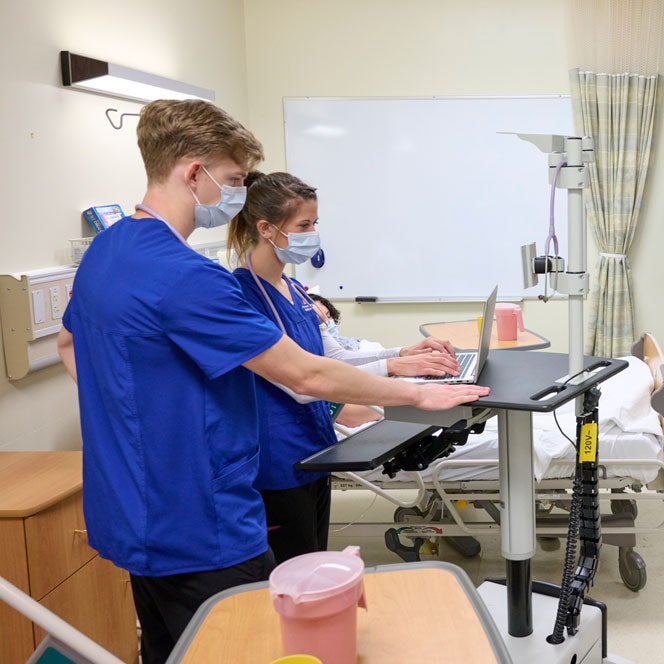Epic is the primary software for electronic patient records in the nation; more hospitals use Epic than any other program. Now as the first university in Idaho using it with students, Boise State does too.
With the help of an anonymous donor and a partnership with St. Luke’s, nursing students can now learn using industry-standard technology.
“A large part of quality medical care is documentation,” said Casey Blizzard, the simulation center operations coordinator. “Having an electronic health record for our nursing students to practice with is huge. Having Epic as that electronic health record is revolutionary.”
St. Luke’s developed a sandbox version of their Epic program, giving students a tool on which they can train. Thanks to a generous donor, students will use it on school-owned computers because “security is really important” for patient data protection and privacy, according to Kelley Connor, director of simulation education and research.
Students will be able to access the system without risk of seeing any actual patient data. The school will also be able to enter data for its own simulated patients, like Georgia Taylor.

“It’s going to pair with our simulation and our skills lab,” Connor said. “So if we do something in a skills lab, we can look at how you find information in Epic that you would use, and how you document that.”
Students will begin using Epic in classes starting August 2023, but professors started piloting it in the Simulation Center this semester.
“It’s about teaching electronic health records in general,” Connor said. “It’s about getting students more prepared and ready to go with those skills when they leave here.”
Learning new technology isn’t always intuitive; by training students on Epic, the School of Nursing aims to remove that burden from the process of onboarding as a new nurse.
“We have strong relationships with area medical providers and we want to supply them with the highest trained nurses possible,” Blizzard said. “When Saint Luke’s created a space for us to integrate Epic into our simulation lab, they helped ensure we can do this. Providing students with the most common medical software in the nation will give them access to a wealth of knowledge before they even graduate.”